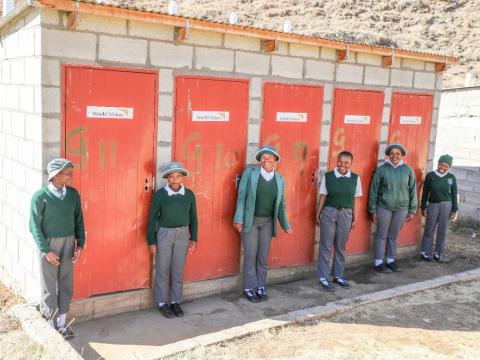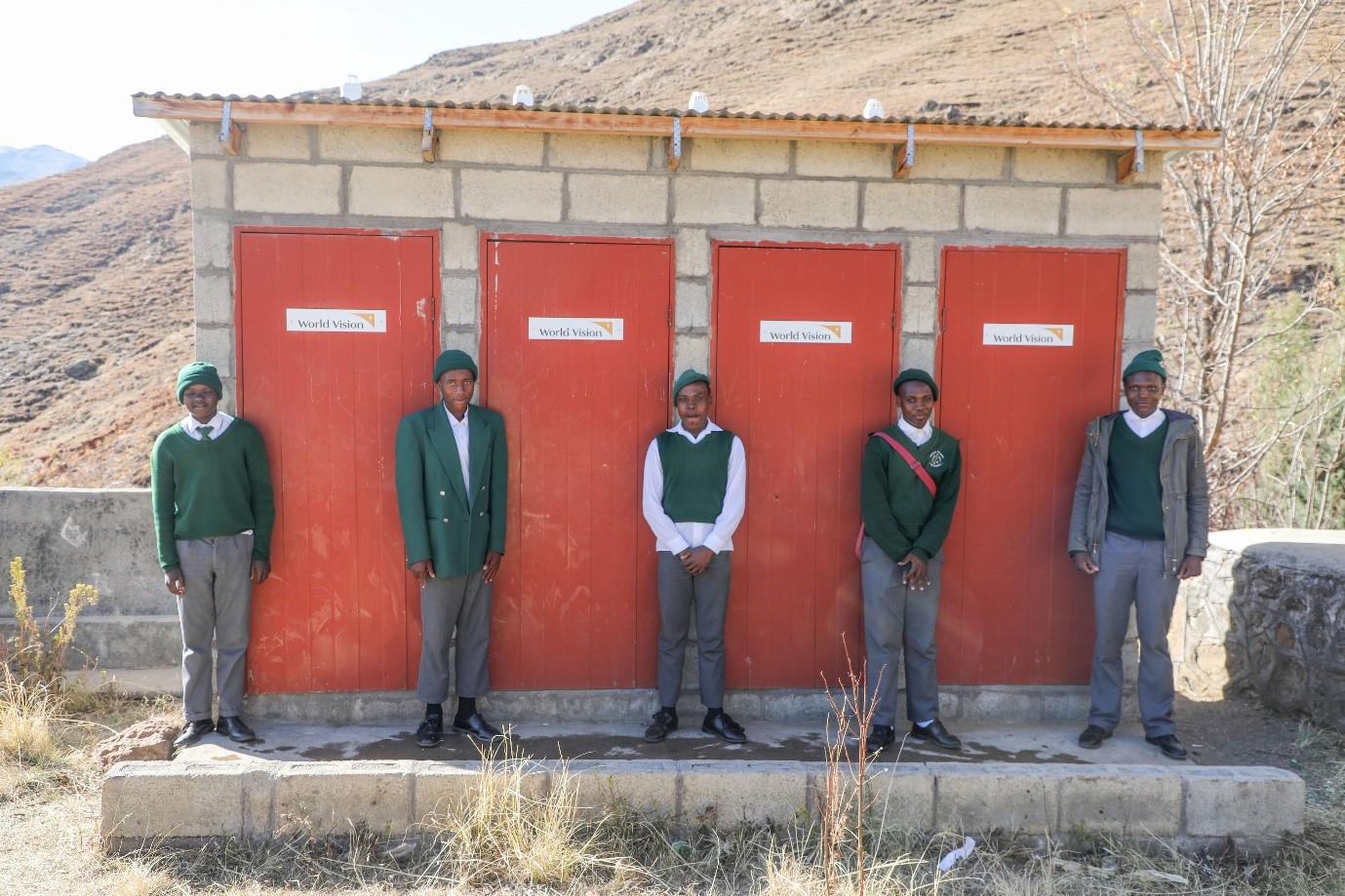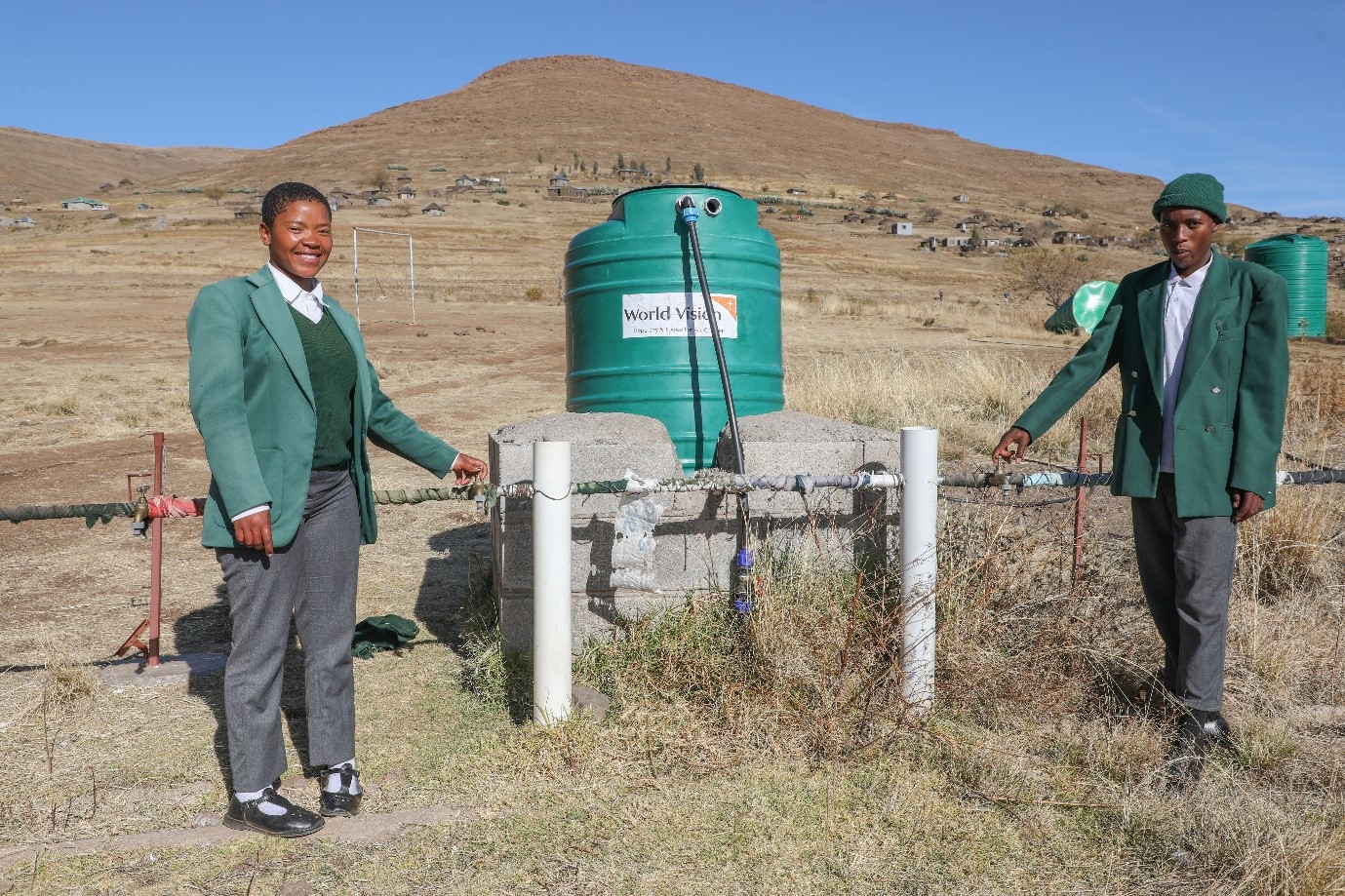A School Reborn: How Water and Sanitation Restored Dignity and Hope at Senkoase High School

By: Reentseng Phephetho, Communications and Digital Officer, Lesotho
In the remotest area of Mokhotlong district, nestled amidst rugged terrain and subjected to harsh climatic conditions, lies Senkoase High School. For years, the school struggled with severe challenges that rendered the learning environment almost unbearable. The absence of basic necessities like toilets and clean water overshadowed the students' quest for education, threatening their health, safety, and dignity.
"We used to walk long distances down into the donga to relieve ourselves. We never felt safe and often contracted diseases," recounted a young girl from Senkoase High School. The school's toilets were frequently destroyed by the heavy winds that swept through the area, leaving students with no option but open defecation. This lack of privacy led to infections, discomfort, and dangerous encounters with local herd boys who watched them from a distance. The wind sometimes even blew faecal matter into the spring they used, contaminating the students' primary water source.
The situation was particularly challenging for girls. Palesa, a grade 10 student, shared her experience: "I personally used to feel like missing school when I was on my period because I worried about having to help myself in the donga without any privacy." The absence of proper facilities stripped the girls of their dignity, forcing them to dispose of sanitary pads in the open. Dogs would often drag these used pads onto the school grounds, exacerbating the hygiene crisis.
“There was a worrying rate of absenteeism, particularly from girls. We later found that they felt unsafe coming to school during their periods due to the lack of privacy, which significantly affected their learning," remarked Mr. Lekhooa Seapi, a teacher at Senkoane High School.
Water scarcity compounded these problems. Students frequently had to leave their classes to fetch water from a distant village tank, disrupting their education. The lack of water made it difficult to maintain hygiene, particularly during the COVID-19 pandemic when their improvised handwashing facilities were often blown away by the wind. "Sometimes we didn't eat at school because without water, food couldn't be prepared. We had to eat from dirty lunch boxes, which caused diarrhea," said a young boy.

Access to clean water, sanitation, and hygiene is essential for the well-being and growth of children and their communities. World Vision believes that every child deserves and has the right clean and safe water and live in a clean environment. World Vision Lesotho intervened through its Water, Sanitation, and Hygiene Technical Programme. In 2021, during the height of the Covid -19 pandemic, World Vision erected a handwashing facility at the school. By 2022, It had built separate toilets for boys and girls, complete with she-bins for menstrual hygiene.
These developments have transformed SenkoaseHigh School, benefiting its 410 students—181 boys and 229 girls. The new facilities have restored the students' safety and dignity, allowing them to focus on their education without the fear and discomfort of their previous conditions. Girls now attend school confidently, even during their menstrual periods, and the overall hygiene standards have significantly improved with the availability of clean water and proper sanitation.
"Indeed, these developments are greatly benefiting our school. Attendance has improved, and learning disruptions have decreased now that we have these facilities within our premises," continued Mr. Seapi.

The provision of sanitation and water facilities at Senkoase High School has not only enhanced the current students' learning experience but has also laid a foundation for future generations. The transformation stands as a testament to the impact of ensuring basic human rights and resources, restoring hope and dignity to children for a better future.